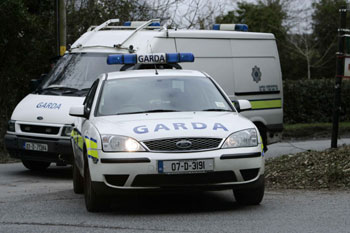Crimes against retailers on the rise

Kidnappings, robberies and drive-offs all up by considerable measure on last year as retailers are increasingly hit by violent crime
11 December 2009
Recent research has proven that crimes affecting retailers have risen significantly in the past year. Poignantly, the revelations came just before the recent murder of Arklow shopkeeper John Deasy (45) who was stabbed at his store as he attempted to help a staff member being held up at the cash register.
In expressing his condolences at the tragic incident, CSNA chief executive Vincent Jennings said that case of Deasy, who was a member of the association, highlights the vulnerability of retailers, which as cash businesses have increasingly become the target of violent crime.
According to recent crime statistics, kidnappings increased by 86% in the third quarter of 2009 compared with the same period in 2008, and rose by 57% in the past 12 months. The CSNA also revealed last month that the number of people driving off from petrol stations without paying is up 300% in the past year.
The trade body’s 175 members with forecourts all took part in a study which unearthed that petrol stations are losing an average of E4,000 a year as a result of drive-offs. Once completed, this research will be used in a consultation process with the Department of Justice. According to Jennings, the penalties involved are not appropriately stringent, and gardaí do not take the offence seriously enough.
Furthermore, in a bid to tackle increasing pilferage, Tesco has started trialling security tags on meat products in five of its Dublin stores. M&S has also introduced the security tags on meats and fish in its three Dublin stores, and a spokeswoman confirmed the retailer would “absolutely” be looking to introduce the tagging system across its 20 Irish stores.
Tesco’s policy attracted criticism on RTÉ radio show Liveline, on the grounds that it was installed only in “working class areas” and therefore unfairly stigmatised those places. Dublin Central TD Joe Costello also described the measure as “Dickensian” and said it was a “discriminatory” move against his constituents.
A spokesman for Tesco subsequently defended the move. He claimed the trials took place in smaller, newer Express stores, as data could be compiled “easily and quickly” from such stores.



 Print
Print






Fans 0
Followers